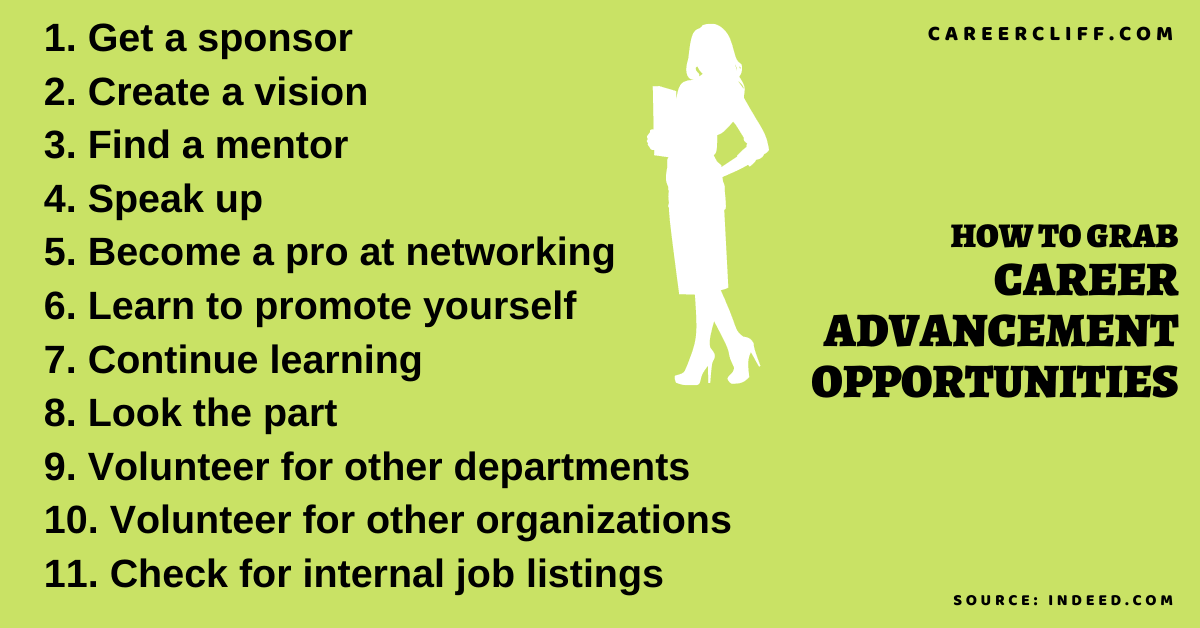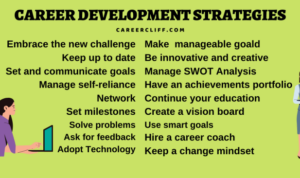Career Advancement Tips: Get ready to level up your career game with these killer strategies, skills, and more. If you’re looking to climb the career ladder like a boss, you’ve come to the right place.
Ready to dive into the world of career advancement? We’ve got the inside scoop on how to boost your career, develop essential skills, network like a pro, build your personal brand, and achieve that elusive work-life balance.
Career Advancement Strategies: Career Advancement Tips
In order to advance in one’s career, it is crucial to have a clear understanding of effective strategies that can propel professional growth. Setting clear goals and continuously seeking opportunities for learning are key components for achieving success in career progression.
Setting Clear Goals
Setting clear and achievable goals is essential for career advancement. By defining specific objectives, individuals can create a roadmap that guides their actions and decisions. Whether it’s aiming for a promotion, acquiring new skills, or expanding one’s network, having a clear vision of where you want to go is the first step towards success.
Continuous Learning
Continuous learning plays a vital role in career progression. In today’s rapidly evolving job market, it is important to stay updated with the latest trends and technologies in your field. By investing in ongoing education and skill development, individuals can enhance their expertise, adapt to changes, and stay ahead of the competition.
Skills Development

In today’s competitive job market, it is crucial to continuously develop and enhance your skills to advance in your career. Employers are looking for candidates who possess a diverse set of skills that go beyond just technical knowledge.
Key Skills for Career Advancement
- Communication Skills: Being able to effectively communicate with colleagues, clients, and stakeholders is essential for career growth.
- Leadership Skills: Demonstrating leadership qualities such as decision-making, problem-solving, and team management can set you apart from others.
- Adaptability: The ability to adapt to new technologies, work environments, and challenges is highly valued in today’s fast-paced world.
- Critical Thinking: Employers seek individuals who can think critically, analyze situations, and come up with innovative solutions.
- Emotional Intelligence: Understanding and managing your emotions, as well as being empathetic towards others, is key for professional success.
Tips for Developing Skills Effectively
- Take Online Courses: Enroll in online courses or workshops to learn new skills and stay updated with the latest industry trends.
- Seek Mentorship: Find a mentor who can provide guidance, support, and valuable feedback to help you grow professionally.
- Practice Regularly: Practice your skills consistently to improve and master them over time.
- Join Professional Organizations: Networking with professionals in your field can help you gain valuable insights and opportunities for skill development.
Significance of Soft Skills
Soft skills, such as communication, teamwork, problem-solving, and adaptability, are equally important as technical skills in career advancement. Employers value candidates who possess a good balance of both hard and soft skills, as they contribute to overall job performance and success in the workplace.
Networking

Networking plays a crucial role in advancing one’s career by providing opportunities for growth, learning, and professional development. Building a strong network can open doors to new job prospects, collaborations, and mentorship.
Building a Professional Network
Building a professional network involves both online and offline interactions. Here are some tips to help you expand your network effectively:
- Attend industry events, conferences, and seminars to meet professionals in your field.
- Join professional organizations and online networking platforms to connect with like-minded individuals.
- Utilize social media platforms like LinkedIn to showcase your skills and expertise.
- Regularly reach out to former colleagues, classmates, and mentors to maintain relationships.
Role of Mentorship
Mentorship is a valuable aspect of career development as it provides guidance, support, and valuable insights from experienced professionals in your field. A mentor can help you navigate challenges, set goals, and expand your professional network. It is essential to seek mentorship opportunities to enhance your career growth.
Personal Branding
Personal branding is crucial for career advancement as it helps individuals differentiate themselves from others in the workplace. It involves creating a unique identity that showcases one’s skills, values, and personality to stand out and attract opportunities for growth and success.
Building a Strong Personal Brand
- Identify Your Strengths: Understand what sets you apart from others and focus on showcasing those strengths.
- Create a Consistent Online Presence: Use social media platforms to highlight your achievements, share valuable content, and engage with industry professionals.
- Seek Feedback: Regularly ask for feedback from colleagues, mentors, and supervisors to improve and refine your personal brand.
- Network Effectively: Build relationships with key individuals in your industry to expand your reach and increase visibility.
Career Opportunities
A strong personal brand can open up various career opportunities by attracting recruiters, potential employers, and business partners who are looking for individuals with specific skills and attributes.
Work-Life Balance
In today’s fast-paced work environment, achieving a healthy work-life balance is crucial for both personal well-being and career advancement. Striking the right balance between work responsibilities and personal life can lead to increased productivity, job satisfaction, and overall happiness.
Impact of Work-Life Balance on Career Advancement
Maintaining a healthy work-life balance can have a significant impact on career advancement. Employees who prioritize self-care and set boundaries between work and personal life are often more focused, motivated, and resilient. This balance allows individuals to avoid burnout, maintain high performance levels, and be more engaged in their work, ultimately leading to greater opportunities for growth and advancement.
Tips for Maintaining Work-Life Balance, Career Advancement Tips
- Set boundaries and prioritize tasks to avoid work spilling over into personal time.
- Schedule regular breaks and time for relaxation to recharge and prevent burnout.
- Delegate tasks when necessary to avoid feeling overwhelmed and maintain a healthy balance.
- Practice mindfulness and stress-reduction techniques to stay present and focused in both work and personal life.
- Make time for hobbies, socializing, and activities that bring joy and fulfillment outside of work.
Importance of Self-Care in Career Growth
Self-care is essential for sustaining long-term career growth. By prioritizing physical, mental, and emotional well-being, individuals can enhance their overall performance, decision-making abilities, and resilience in the face of challenges. Investing in self-care not only benefits personal health and happiness but also contributes to professional success and advancement in the long run.


